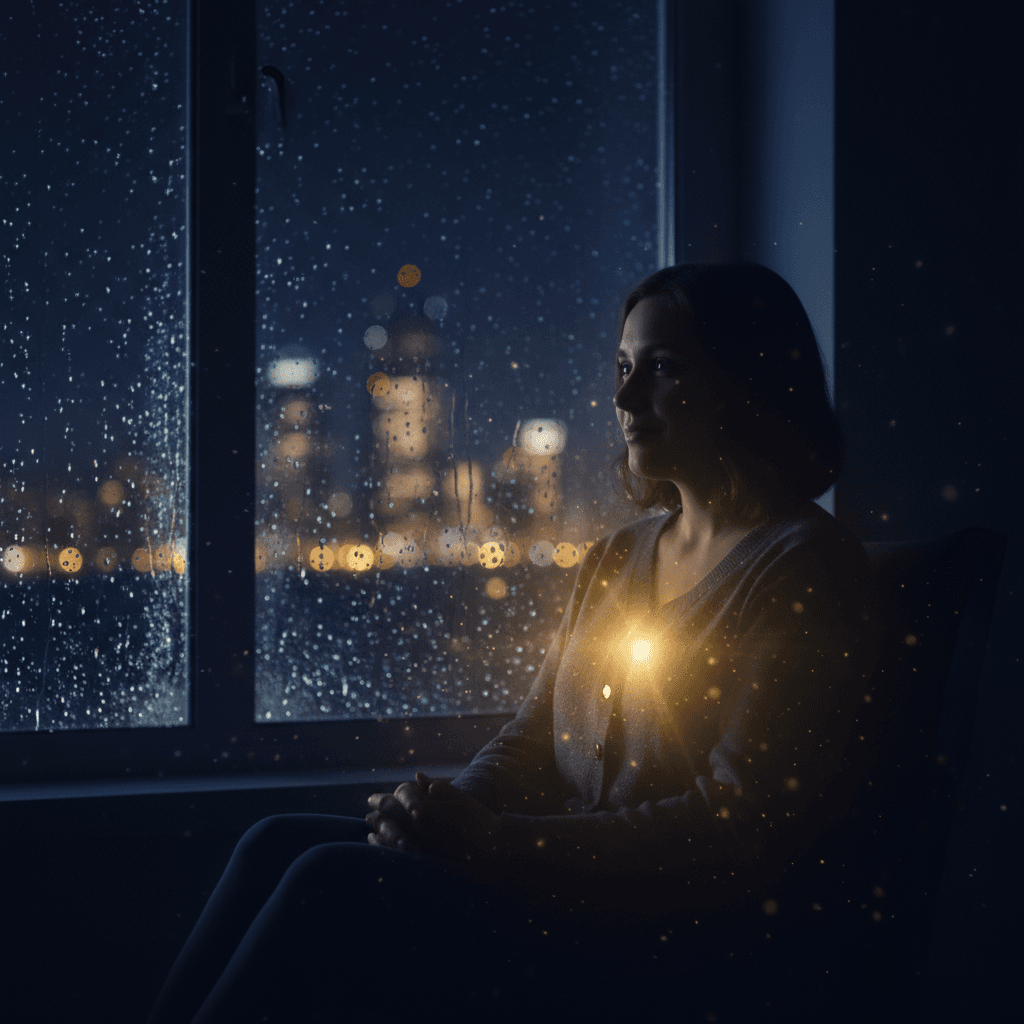Revealing the Astonishing Light Within Ourselves

I wish I could show you when you are lonely or in darkness the astonishing light of your own being. — Hafiz
—What lingers after this line?
One-minute reflection
What does this quote ask you to notice today?
An Invitation to Recognize Inner Radiance
Here, Hafiz speaks not of giving light but revealing what is already present. The wish to show someone their own radiance recognizes a tender paradox: in moments of loneliness and darkness, our inner brilliance is least visible to us, even as it remains undiminished. The line addresses the ache of self-forgetting, the way suffering narrows perception until worth and dignity slip from view. Yet it also carries an implicit promise: illumination can be remembered, not manufactured. This opens a path from pity to empowerment—rather than rescuing, one bears witness. To see how this vision arises, we can turn to the tradition that shaped Hafiz’s imagination.
Sufi Roots of Light and Presence
In the Persian Sufi milieu of Hafiz of Shiraz (c. 1315–1390), light symbolizes the divine presence in the heart. His Divan frames tavern, wine, and beloved as metaphors for union, a blaze that burns away separation. The Qur'an’s Light Verse—'God is the Light of the heavens and the earth... light upon light' (24:35)—saturates this imagery, and Rumi’s Masnavi (13th c.) likewise speaks of the soul as a lamp awaiting oil. Thus the 'astonishing light' is not flattery but ontology: being itself is luminous. With that foundation, the darkness in the quote becomes a temporary obscurity rather than an essential feature of the self, which leads us naturally to what modern psychology observes about attention under duress.
Loneliness as a Veil, Not Identity
Modern research echoes this. Under threat, attention narrows and peripheral cues fade—a pattern described by Easterbrook (1959). In loneliness, this tunnel vision fuses with negativity bias, where 'bad is stronger than good' (Baumeister et al., 2001), making personal value feel distant or unreal. Self-compassion practices, however, counteract this constriction. Kristin Neff (2003) shows that treating oneself with the kindness reserved for a good friend reduces rumination and shame. In Hafiz’s terms, compassion clears the soot from the lamp’s glass rather than forcing it to burn hotter. Recognizing darkness as a veil, not an identity, prepares us to ask how, in practice, we help one another see what we cannot yet see alone.
Mirrors That Help Us See Ourselves
Humans discover themselves in mirrors both literal and relational. Donald Winnicott (1967) described the mirror-role of caregivers whose attuned gaze reflects the infant’s aliveness back to them; Charles Cooley’s looking-glass self (1902) extends this into society at large. Consider the simple scene of a teacher returning a draft not with corrections but a note: 'Your voice stopped me cold.' In an instant, what felt like darkness becomes contour. Hafiz’s wish is precisely for such witnessing. Yet mirrors work best when they are clean; flattery clouds them, honesty polishes. From here, specific disciplines can keep the glass clear so that, even alone, we can remember the gleam.
Practices for Remembering the Light
Several small practices reliably widen perception. Mindfulness-Based Cognitive Therapy teaches noticing thoughts as thoughts, reducing depressive relapse (Segal, Williams, and Teasdale, 2002). Loving-kindness meditation cultivates warmth toward self and others, broadening attention and building resources (Fredrickson et al., 2008). In Sufi tradition, dhikr—the rhythmic remembrance of the divine name—steadies the heart until a quiet brightness returns. Even a brief sequence helps: feel the breath for three minutes, name present sensations, and offer silently, 'May I be safe; may I be at ease.' These do not install light; they clear the way for it. Having regained a glimmer, many turn to art, another ancient lantern for the night.
Art as a Lantern in the Night
Art often reveals what argument cannot. St. John of the Cross’s Dark Night of the Soul (c. 1579) portrays darkness as a purifying passage toward a more radiant union, while Rumi’s reed flute cries of the soul’s longing show how sound itself points beyond itself. In a hospital waiting room, a woman reading Mary Oliver’s 'The Journey' feels her shoulders drop; the poem names her courage before she can. Likewise, a few bars of Beethoven’s Moonlight Sonata can make the inner room audible. Such moments do not add light so much as uncover it, letting us feel accompanied through the dark. And once we feel accompanied, the impulse to accompany others naturally arises.
From Self-Illumination to Shared Light
When people glimpse their own worth, they tend to kindle it in others. Acts of service create feedback loops of meaning; researchers have noted a 'helper’s high' that improves mood and resilience (Luks, 1988). Mutual aid groups show how individual embers become communal warmth, especially in crises. In this way, Hafiz’s wish scales from an intimate assurance to a civic ethic: we become lantern-bearers, not because others are empty, but because seeing is easier together. Thus the circle closes—our light helps reveal theirs, and theirs returns the favor—until loneliness and darkness, while still real, no longer define the room.